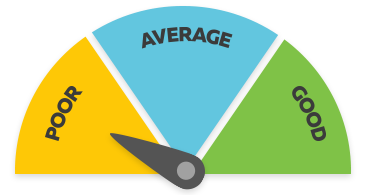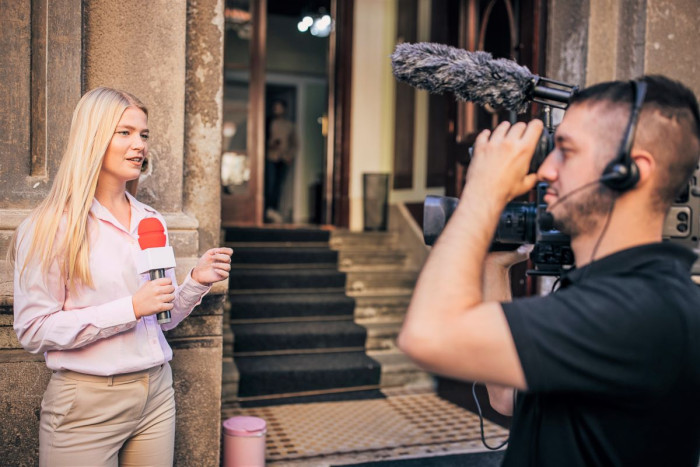Journalist
Kairīpoata Pepa
Alternative titles for this job
Journalists research and produce stories for websites, print, radio, television and other media.
Pay
Journalists usually earn
$49K-$100K per year
Source: Massey and Seek, 2023.
Job opportunities
Pay
Pay for journalists varies depending on their position, the hours they work, their experience and the type of media they work in.
- Most journalists earn between $49,000 and $100,000 a year.
- Senior investigative journalists working in broadcasting can earn more than this.
Journalists may receive allowances for working after hours.
Sources: Massey University, 'Worlds of Journalism Study 2.0. Journalists in Aotearoa/New Zealand,' October 2022; and Seek, 2023.
- JEANZ website Worlds of Journalism Study 2.0. Journalists in Aotearoa/New Zealand
-
PAYE.net.nz website - use this calculator to convert pay and salary
- Employment New Zealand website - information about minimum wage rates
(This information is a guide only. Find out more about the sources of our pay information)
What you will do
Journalists may do some or all of the following:
- find and collect news about local or international events and issues
- research and write stories
- interview people and record interviews
- shoot and edit photographs and videos
- present stories on radio or television.
Skills and knowledge
Journalists need to have:
- excellent interviewing and reporting skills
- excellent writing skills
- general knowledge of local, national and international affairs
- in-depth knowledge of the area they are covering or specialising in
- research skills
- social and communication skills
- knowledge of media ethics and law
- photography and videography skills.
Working conditions
Journalists:
- often work shifts, including early mornings, evenings, weekends and public holidays
- work in newsrooms and offices, and on location
- work in conditions that may be stressful due to deadlines, or distressing if reporting unpleasant events
- may need to work outside in all weather conditions
- may travel locally, nationally and internationally to cover stories.
What's the job really like?
Journalist video
Eda Tang talks about life as a journalist – 2.32 mins
So my job is to create stories with the range of media,
mainly in the form of articles, mostly around 400 words. Sometimes features,
sometimes I do videos and I tell stories from under-served communities. So
usual day, I'd get to the office at 9 o'clock and see what kind of press
releases are coming in, what's happening around the world,
and I'll pick up some interesting stories, start interviewing people,
probably go out and meet them and then we'll put
them together into a piece and then we'll write it.
And then that could be a story within a day. So we're going to Albert Park.
There's an interviewee there.
We're going to talk to them about a community hub that they're running for Auckland
Pride. So usually I pick my own stories,
which is really cool because it means that all of the journalists can bring in
their life experiences,
their worldviews and their connections into the newsroom,
which means that we get more diverse stories and more original stories. Hamiora
is just showing me around the whare and he is
talking to me about the setup of the place.
I've just got my transcription app running so I can have a more natural
conversation with him. When I go back to the office,
it's all down in text and I can just read through it and pick out bits that I
want for the article. So after high school,
I went to university and studied a Bachelor of Arts specialising in
communications. And after my studies,
I was editing a student magazine at the time.
I applied for a job as a journalist and got it,
even though I didn't go to journalism school. This is where the journalists
hangout. There's about 50 of us in the Auckland newsroom. We do print, video,
podcasts, magazines – you name it.
Probably one of the most difficult things about
this job is putting up boundaries
between the people you're interviewing at the right time and place. I personally
love to keep relationships going with particular people that I talk to just
because they've shared their story and given
something to me in my personal life.
Best thing about being a journalist is you get to meet so many cool people,
you get to have a look into a small part of their lives,
and they are generally so welcoming. Some advice that I'd have for anyone
aspiring to be a journalist is to keep going with your arts and humanities
courses at schools, so your English, your sociology, your history,
because it's all about being curious about people and their lives.
Entry requirements
To become a journalist you usually need to have a relevant tertiary qualification such as a Bachelor of Communication or a New Zealand Diploma in Journalism.
A driver's licence is usually required.
Secondary education
A tertiary entrance qualification is required to enter further training. Useful subjects include te reo Māori, English, media studies, design and visual communication, digital technologies, and languages.
Personal requirements
Journalists need to be:
- enquiring, curious, persistent and patient, with excellent communication skills
- confident and motivated
- good at relationship management
- accurate
- able to accept criticism
- good at time management
- able to work well under pressure.
Useful experience
Useful experience for journalists includes:
- all types of writing experience
- radio, television or video work
- work involving interviewing people.
Physical requirements
Radio and television journalists need to have clear voices.
Find out more about training
- Journalism Education Association of New Zealand
- www.jeanz.org.nz
What are the chances of getting a job?
The small size of New Zealand's broadcasting industry means low demand for television and radio journalists.
According to the Census, 1,197 print journalists, 219 radio journalists, and 219 television journalists worked in New Zealand in 2018.
Opportunities are best for experienced journalists.
More journalist opportunities for graduates of courses that include work placement
If you are starting out as a journalist, your chances of getting a job are strongest if you:
- have completed a Bachelor’s degree, diploma, graduate certificate or postgraduate diploma in journalism, public relations or communications, and your course included work placements
- approach employers directly
- develop relationships with other journalists and industry contacts
- write for free to start with, and build up a portfolio of work
- look for work at smaller regional and community newspapers, where staff turnover is higher.
Small range of employers
Journalists work for:
- online news sites
- newspaper and magazine publishing businesses
- radio networks
- television networks and production companies.
Sources
- Peacock, C, 'Tapping the Readers for Revenue', 5 May 2019, (www.rnz.co.nz).
- Stats NZ, '2018 Census', 2019.
(This information is a guide only. Find out more about the sources of our job opportunities information)
Progression and specialisations
Journalists may progress to become editors or chief reporters. Many journalists move into communications or public relations roles.
Journalists may specialise in:
- broadcasting, including radio or television work
- print media, including working for newspapers or magazines
- web journalism, including audio and video work.
Last updated 31 March 2025


